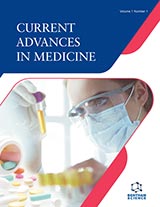Abstract
SARS-CoV-2 (COVID-19) has caused serious mortal damage to the human
race. The virus causes respiratory infections, and many studies are trying to
comprehend the mode of spread and infection. This chapter has explained the origin of
the virus, its structure and activity domain, symptoms, medicinal interventions, and
particularly various modes of spread with emphasis on air pollution as contributing and
facilitating factors assisted with favourable meteorological conditions, including
temperature and relative humidity. Pieces of evidence from different countries suggest
that the spread of the virus may be facilitated by air pollution and people who are
exposed to high pollution levels are more susceptible to falling victim to the virus.
Transmission of the SARS-CoV-2 may be facilitated by the airborne particulate matter,
and both particulate matter and coronavirus cause oxidative stress in the body that
helps in enhancing the susceptibility and severity towards respiratory infection. Not
only ambient air pollution, but indoor air pollution (IAP) is also a factor worth
considering. People in developing and under-developed nations are at high risk as they
are exposed to high IAP levels. Awareness must be created to educate them about the
associated harmful consequences, including the risk of catching the lethal COVID-19
infection. In the absence of any concrete medicinal solution, it is necessary to build
immunity which may be uplifted by the usage of natural food sources, including herbs
and spices. An overview of some commonly available herbs and spices of medicinal
importance has also been given in the chapter.






















